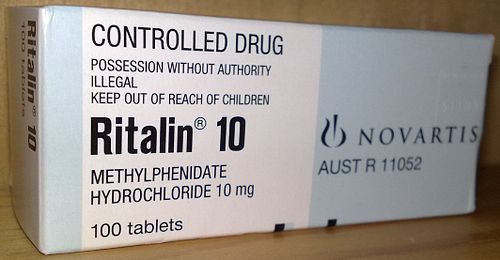Amphetaminenoun
The racemic freebase of 1-phenylpropan-2-amine; an equal parts mixture of levoamphetamine and dextroamphetamine in their pure amine forms.
Amphetaminenoun
(informal) Any mixture of the two amphetamine enantiomers, dextroamphetamine and levoamphetamine.
Amphetaminenoun
Referring to a substituted amphetamine; a member of the amphetamine class of chemicals.
Amphetaminenoun
A potent central nervous system stimulant of the phenethylamine chemical class that is used to treat ADHD, narcolepsy, and obesity.
Amphetaminenoun
a central nervous system stimulant that increases energy and decreases appetite; used to treat narcolepsy and some forms of depression
Amphetamine
Amphetamine (contracted from alpha-methylphenethylamine) is a central nervous system (CNS) stimulant that is used in the treatment of attention deficit hyperactivity disorder (ADHD), narcolepsy, and obesity. Amphetamine was discovered in 1887 and exists as two enantiomers: levoamphetamine and dextroamphetamine.
Methylphenidatenoun
central nervous system stimulant (trade name Ritalin) used in the treatment of narcolepsy in adults and attention deficit disorder in children
Methylphenidate
Methylphenidate, sold under the brand name Ritalin among others, is a stimulant drug used to treat attention-deficit/hyperactivity disorder (ADHD) and narcolepsy. It is a first-line medication for ADHD. It may be taken by mouth or applied to the skin, and different formulations have varying durations of effect.Common side effects of methylphenidate include difficulty sleeping, decreased appetite, anxiety, and weight loss.











